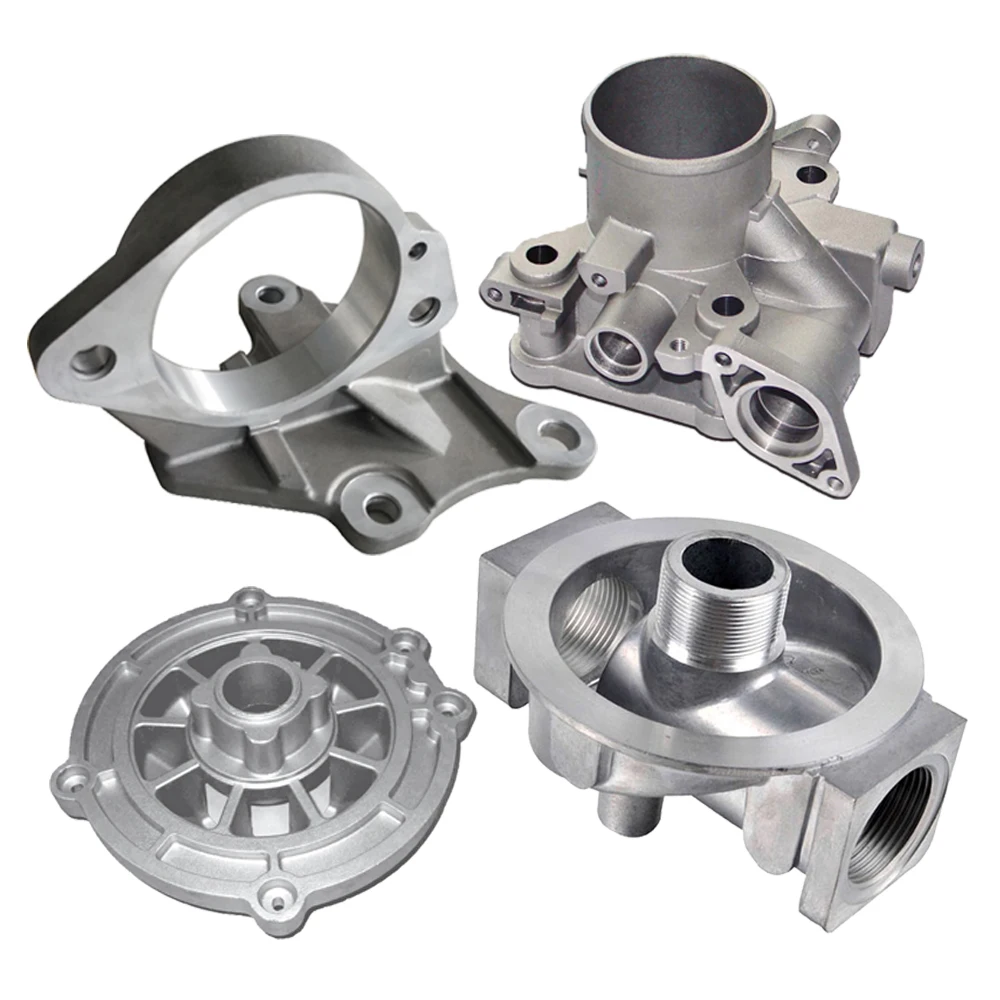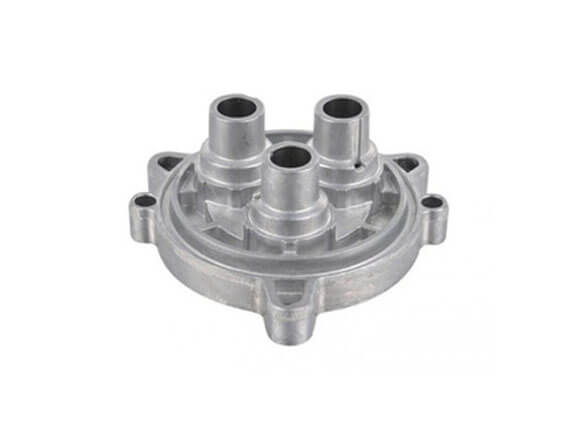Precision aluminum casting solutions that boost product reliability and performance
Wiki Article
The Influence of Innovative Shop Services on Lasting Production Practices
Innovative factory services play a vital duty in advancing lasting production practices. By integrating reusing innovations and energy-efficient procedures, these solutions significantly lower ecological effect. Shops can redeem valuable products, thus decreasing dependancy on virgin resources. As automation and lean manufacturing concepts acquire traction, manufacturing performance is enhanced. However, the complete degree of these developments and their ramifications for the future of making remain to be discovered.The Role of Advanced Recycling Technologies in Foundries
Advanced recycling technologies are changing the landscape of shops by boosting product healing and decreasing waste. These innovative processes permit shops to redeem beneficial metals and products from scrap, minimizing dependence on virgin sources. By integrating advanced sorting, shredding, and melting methods, factories can effectively draw out functional materials from discarded items, thereby advertising a circular economic climate.These modern technologies support the production of high-quality alloys and components, making sure that recycled materials satisfy stringent industry criteria. As a result, shops are not only boosting their product efficiency however also decreasing the environmental impact associated with typical manufacturing approaches
This change towards progressed recycling not only reinforces economic stability for foundries but additionally straightens with worldwide sustainability objectives. Eventually, the consolidation of these innovations stands for a considerable advance in the quest for sustainable production techniques within the factory market.
Energy Efficiency: Lowering Intake in Production Processes
Power efficiency in manufacturing procedures is crucial for lasting operations. Methods such as procedure optimization methods, renewable resource combination, and waste warmth healing play essential duties in decreasing power intake. By concentrating on these locations, manufacturers can considerably decrease their environmental impact while enhancing performance.Process Optimization Techniques
A considerable variety of manufacturing facilities are increasingly embracing procedure optimization strategies to enhance energy performance and lower intake. These techniques entail fine-tuning and evaluating manufacturing operations, identifying bottlenecks, and applying automation to enhance procedures. By leveraging data analytics, producers can check energy use in real-time, making it possible for proactive adjustments to lessen waste. Techniques such as Lean Manufacturing and Six Sigma focus on maximizing and getting rid of inefficiencies resource allocation. Furthermore, advanced technologies like Internet of Things (IoT) sensors give insights into equipment efficiency, assisting in predictive maintenance that stops power loss. On the whole, these procedure optimization approaches not only add to reduced power consumption however additionally foster a society of continual improvement within making atmospheres, aligning functional exercise with sustainability goals.Renewable Energy Integration
Several production facilities are progressively integrating sustainable power resources to boost general power performance and reduce dependence on standard power grids. This adjustment consists of the adoption of solar, wind, and biomass energy, which can greatly decrease and reduce operational costs carbon footprints. By using these sustainable energy resources, producers not only reduce their environmental influence but also enhance energy durability. Additionally, incorporating renewable resource systems often includes advanced modern technologies such as energy storage space and wise grid solutions, which enhance energy use and facilitate real-time monitoring. This combination sustains makers in achieving regulatory compliance and meeting sustainability objectives while fostering innovation in manufacturing procedures. Inevitably, eco-friendly power integration stands for an essential shift towards even more lasting production techniques and long-term feasibility.Waste Warmth Healing
Incorporating renewable resource sources sets the phase for further developments in energy efficiency, specifically via the application of waste heat recovery systems. These systems catch excess thermal power created during making procedures, which would certainly otherwise be shed to the environment. By repurposing this warmth, shops can considerably minimize their power usage, reduced operational prices, and lessen their carbon footprint. The recouped warmth can be made use of for numerous applications, such as heating, power generation, or pre-heating basic materials. As a result, waste warm recovery not only boosts power effectiveness however additionally adds to a sustainable production model. Innovative foundry services that prioritize this modern technology are paving the way for an eco responsible commercial landscape, aligning productivity with environmental stewardship.Using Eco-Friendly Materials in Foundry Operations
As the need for lasting production methods grows, factories are progressively transforming to environment-friendly products to boost their procedures. By incorporating lasting alternatives, such as bio-based binders and recycled metals, foundries can considerably decrease their ecological footprint. These materials usually require less power for handling and can minimize hazardous exhausts throughout production.Additionally, the adoption of environment-friendly materials not just aligns with regulatory criteria yet also fulfills customer preferences for greener items. Foundries are checking out innovative choices, such as making use of natural ingredients that enhance mold and mildew quality while staying non-toxic.
The change to sustainable products cultivates a round economic climate by advertising source reuse and decreasing waste. Additionally, this adjustment can boost the general performance of factory procedures, as eco-friendly products frequently display exceptional properties, resulting in improved item performance - aluminum casting. Ultimately, the utilization of environmentally friendly products represents a critical step towards sustainable manufacturing in the foundry industry

Innovations in Waste Administration and Decrease Techniques
The change in the direction of green materials in shop operations paves the way for improvements in waste monitoring and reduction methods. Cutting-edge factory solutions are increasingly taking on methods that reduce waste generation and advertise recycling. Strategies such as closed-loop systems permit the reuse of products, considerably lowering the volume of waste created during producing procedures. Additionally, developments in filtering and separation modern technologies make it possible for the reliable healing of important byproducts, which can be rehabilitated into the production cycle.In addition, the execution of real-time monitoring systems offers data-driven insights right into waste generation patterns, assisting in informed decision-making to optimize source use. Factories are also checking out biowaste remedies, transforming natural waste right into power or functional materials, even more promoting sustainability. These developments not only add to a circular economic situation but also improve the total ecological efficiency of shop procedures, emphasizing the market's dedication to lowering its ecological footprint.
The Effect of Automation on Lasting Production
While several sectors purpose for sustainability, automation becomes a crucial consider enhancing sustainable production methods within shops. By incorporating automated systems, shops can attain better efficiency, reduce waste, and reduced power intake. Automated procedures enable precise control over production specifications, reducing problems and rework, which in turn preserves sources.Additionally, automation helps with the surveillance of environmental influences, making it possible for real-time adjustments that align with sustainability goals. Precision aluminum casting. Advanced robotics and artificial knowledge can optimize product use, causing significant decreases in scrap and exhausts
In addition, automated innovations advertise safer workplace by taking care of hazardous tasks, therefore improving worker well-being while making sure conformity with environmental regulations. On the whole, the adoption of automation within factories not only simplifies procedures but likewise plays a pivotal function ahead of time lasting production methods, contributing to a much more accountable industrial landscape.
Case Studies: Effective Implementation of Lasting Factory Practices
Effective application of lasting methods in factories can be illustrated with different instance researches that highlight quantifiable end results and ingenious approaches. One remarkable example is a mid-sized shop that embraced a closed-loop water reusing system, reducing water intake by 40% and decreasing wastewater generation. Additionally, this center transformed to using eco-friendly mold products, which not only enhanced item high quality but additionally improved employee security.An additional significant case included a big shop integrating renewable resource sources, such as photovoltaic panels, which offset 30% of its energy needs. This initiative not only lowered functional prices yet also added to a considerable decrease in carbon emissions.
A foundry that applied lean manufacturing methods reported a 25% increase in performance, leading to much less worldly waste and enhanced production procedures. These situations jointly underscore the concrete benefits and sustainability developments attainable via cutting-edge foundry practices.
Frequently Asked Concerns
How Do Ingenious Foundry Solutions Add To Total Sustainability Goals?
Innovative foundry services enhance general sustainability goals by maximizing resource usage, reducing waste, and improving power efficiency. These improvements add to decrease carbon impacts and promote environmentally liable practices within the manufacturing sector, sustaining wider sustainability efforts.What Are the Economic Conveniences of Adopting Sustainable Factory Practices?
Adopting sustainable foundry methods can decrease operational prices, enhance source efficiency, and boost competition. Additionally, these techniques can attract eco-conscious clients and financiers, eventually bring about raised productivity and long-lasting financial viability for organizations.Just How Can Little Factories Apply Lasting Developments Properly?
Small factories can carry out sustainable technologies efficiently by embracing energy-efficient technologies, enhancing source usage, training staff on sustainable methods, teaming up with distributors for environmentally friendly products, and involving in continuous enhancement processes to minimize waste and exhausts.What Qualifications Exist for Sustainable Foundry Workflow?

Just How Do Customer Preferences Impact Lasting Production in Foundries?
Customer preferences substantially influence lasting production in factories by driving need for eco-friendly products. As customers prioritize sustainability, foundries adapt their techniques, incorporating greener technologies and materials to satisfy market assumptions and Aluminum Foundry boost their competitive advantage.By repurposing this warm, factories can considerably minimize their energy consumption, reduced operational expenses, and minimize their carbon impact. Factories are additionally checking out biowaste solutions, converting organic waste right into energy or usable materials, better advertising sustainability. By incorporating automated systems, foundries can attain higher effectiveness, decrease waste, and lower power intake. Another significant case entailed a huge foundry incorporating eco-friendly power sources, such as solar panels, which counter 30% of its energy needs. Cutting-edge shop services boost total sustainability goals by maximizing source usage, decreasing waste, and boosting energy performance.
Report this wiki page